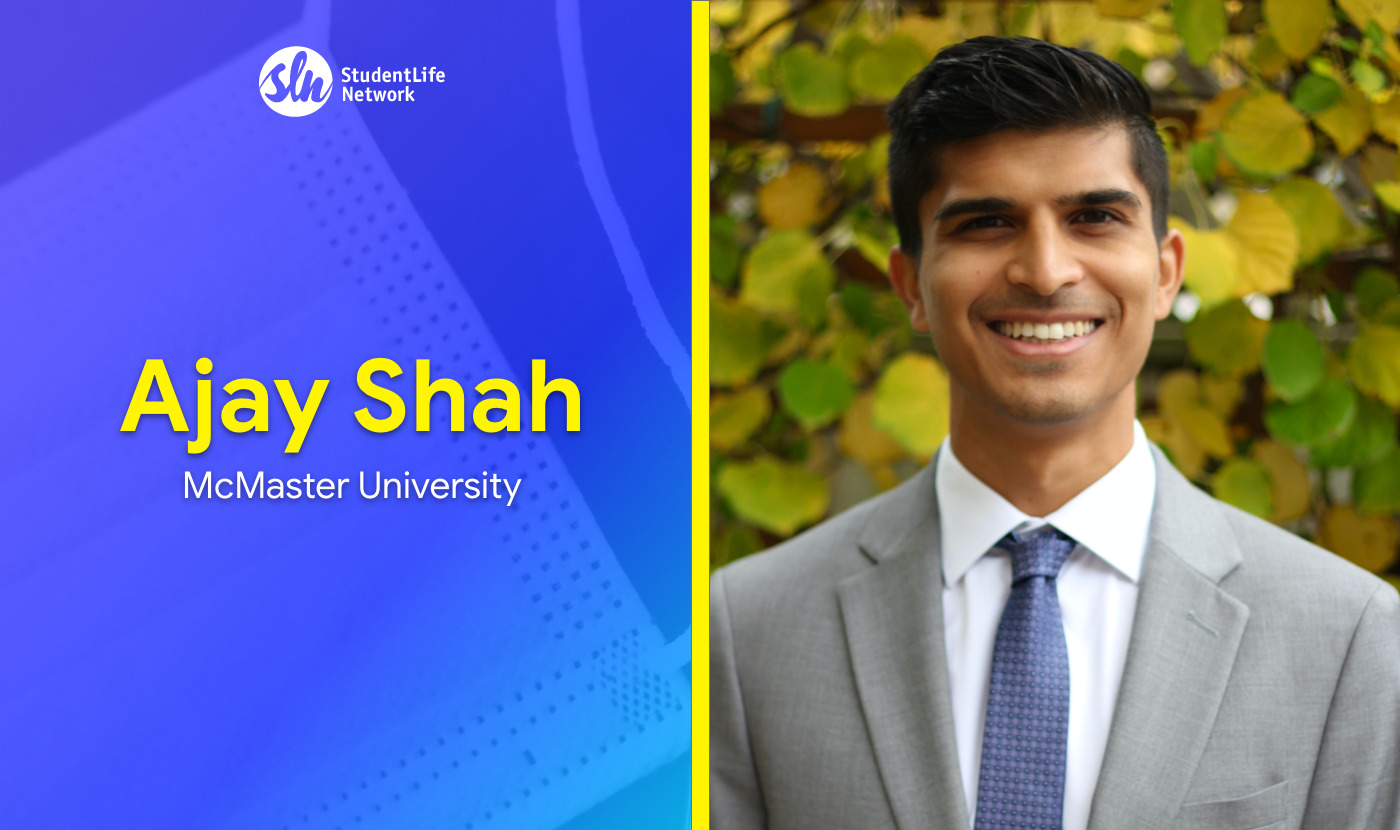Ajay Shah is a 23 year old medical student at McMaster University, one of the world’s most research intensive schools known for its advancements within the sciences. He studied undergraduate medicine at the University of St. Andrews in Scotland but applied to medical schools across Canada to pursue a career in North America. Today, his medical interests focus primarily on orthopaedic surgery.
When classes came to a screeching halt in the spring of 2020, Ajay was one of the hundreds of medical students to volunteer on the frontlines and support those that were most vulnerable.
So, we spoke with Ajay to get an unfiltered look into what things were like from his perspective nearly one year ago.
Can you tell us a little bit about yourself?
I am a final-year medical student at McMaster. My hobbies include sports, games, meditation, and spending time with family. I had a raucous undergraduate experience but matured in medical school. I took a year off to do research and electives and ended up volunteering for 3 months in a long-term care (LTC) home.
In what ways did your studies prepare you for supporting the frontlines? In what ways did you feel unprepared?
To be fully transparent, surgical training is rigorous and can often be emotionally difficult. The path to becoming a surgeon has definitely taught me to be resilient, hard working and to make sacrifices for others. Working in a LTC home throughout the early stages of COVID-19 was scary, disorienting and overwhelming. I did not feel confident in my ability to perform the responsibilities at hand. I was in a whole new environment. Fortunately, I relied on the things I had learned during my clinical placements. That includes not only the concrete medical knowledge, but the skills to navigate unprecedented circumstances and limited training. For example, I would often take vital signs or give medications in the LTC home, and I also learned how to do dressing and brief changes. It was a very awakening experience as with one resident, I had to perform a rapid trauma assessment, just as I would have done on an emergency medicine rotation.
How do you feel your experiences supporting the frontlines will influence your practice as you continue to develop in your career?
During my experience in the LTC home, my co-workers assured me that this experience would help me as a future physician. Learning how to comfort and care for the residents was very important to me, and important to the job. Working alongside professionals from other healthcare disciplines allowed me to talk to them and learn about the nuances of their profession. In orthopaedic surgery, we treat a lot of elderly patients, oftentimes from nursing homes or other facilities. This experience gave me an understanding of the day-to-day routines of these patients and their caretakers. I will always factor these experiences into my decision making when treating patients from assisted living facilities.
How did your experience volunteering in a long-term care facility impact you emotionally?
“At one point I spoke to a counselor via a helpline for all frontline UHN employees.”
Emotionally, working in the LTC home was difficult. At one point I spoke to a counselor via a helpline for all frontline UHN employees. I found the isolation particularly difficult: coming home after a 12-hour shift to an empty apartment felt sad. I filled my free evenings with video games, unhealthy eating, and a few beers, and found it hard to be motivated to do the hobbies that I take pleasure in. Ultimately I was able to break the cycle of unhappiness thanks to the help I received from the counsellor, filling my time with fun habits like cycling with friends (at a safe distance of course), cooking new recipes, and baking bread. While at work, I challenged myself to stay positive by spreading cheer and making the residents laugh. However it was undoubtedly tough to see these lovely people stuck in their room for 2-3 months.
How do you feel the learnings from the COVID-19 pandemic will impact the role of doctors and health care workers in the future?
I think it is hard to generalize how healthcare workers will be impacted by the COVID-19 pandemic in the long-term, particularly because there is so much variance in how these circumstances have affected people. Healthcare workers experienced high rates of mental illness and financial strain during the pandemic especially compared to those working in different industries. However, I think that many individuals that worked the frontlines during this pandemic found their contributions rewarding because they were able to save lives and comfort those that needed it the most during a global health crisis.
What is your biggest pain point right now, and what kind of support do you need or would benefit from?
“Wash your hands and be considerate to those that may not have the capacity to fight off the COVID-19 virus.”
I feel just like everyone else – the lack of social freedom can be frustrating. I think my biggest pain point right now is hearing about clear violations of the current guidelines. I would request that everyone please stay home and only venture out if absolutely necessary. Please wash your hands and be considerate to those that may not have the capacity to fight off the COVID-19 virus if they are exposed.
On behalf of Student Life Network’s staff, we want to extend a major thank you to not only Ajay but to all the students that risked their own health to support the front lines during this pandemic. We will continue to do our part to keep our communities safe, healthy and inspired.
We wish Ajay Shah the best of luck at McMaster and a promising career in orthopaedic surgery!
*Opinions expressed are those of the author, and not necessarily those of Student Life Network or their partners.




